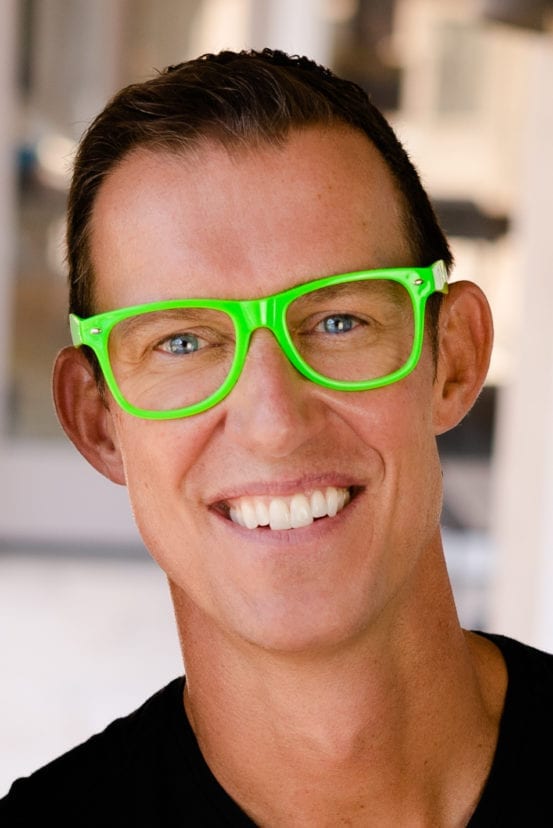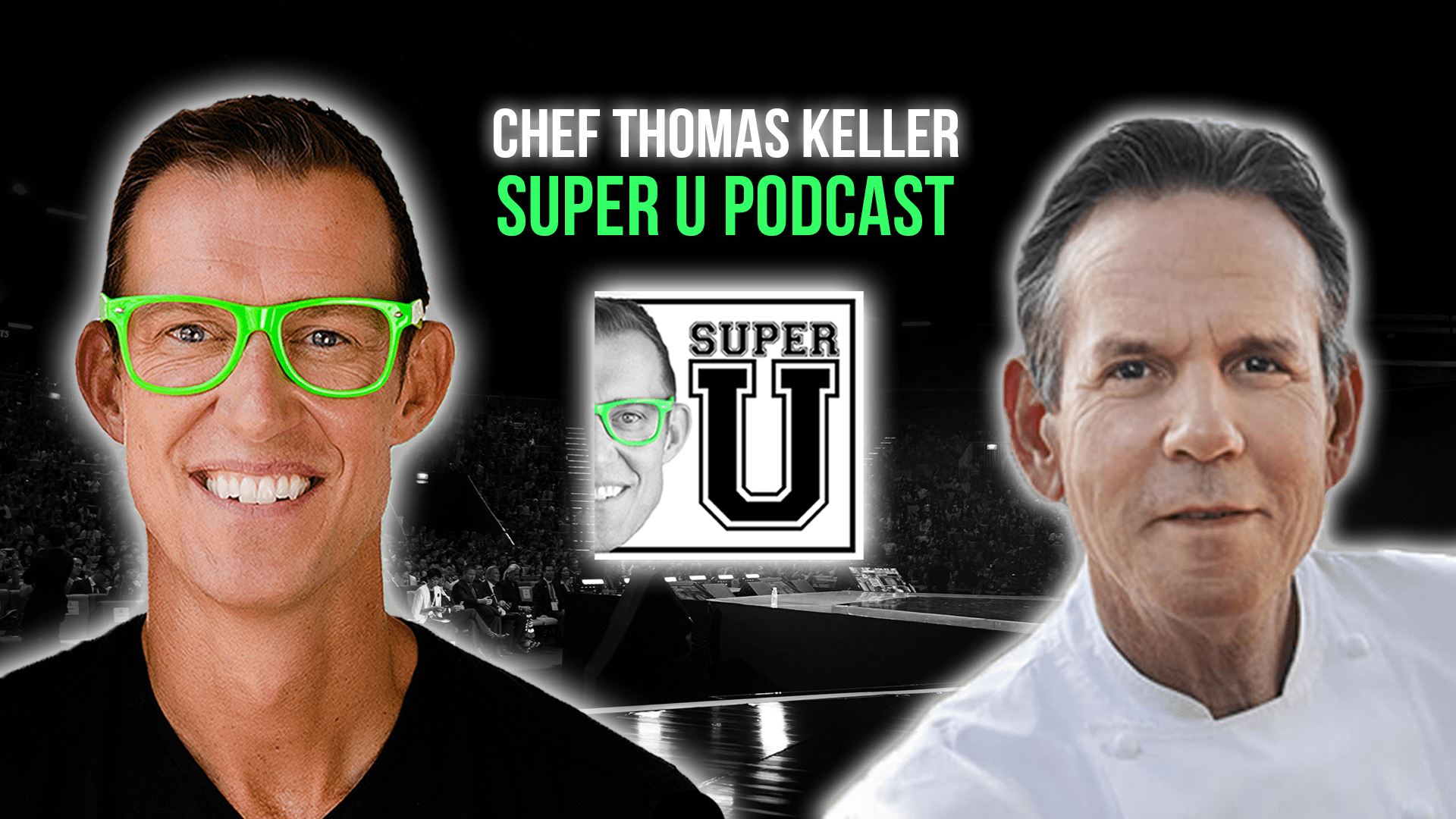Super U Podcast | 7 Super Tips with Chef Thomas Keller
Chef Thomas Keller is renowned for his culinary skills and high standards. He has established a collection of restaurants that sets a new paradigm within the hospitality profession, including The French Laundry, in Napa Valley, and Per Se, in New York, among others. He is the first and only American-born chef to hold multiple three-star ratings from the prestigious Michelin Guide, as well as the first American male chef to be designated a Chevalier of The French Legion of Honor. He has received countless accolades, including The Culinary Institute of America’s “Chef of the Year” Award and the James Beard Foundation’s “Outstanding Chef” and “Outstanding Restaurateur” Awards. He holds an honorary Doctor’s in Culinary Arts from The Culinary Institute of America. Chef Keller led a team from the U.S. to its first-ever gold medal in the Bocuse d’Or, a prestigious biannual competition that is regarded as the Olympics of the culinary world. With more than 1.5 million copies of his cookbooks in print, he is the author of six cookbooks, including the recently released, The French Laundry, Per Se.
5x #1 Bestselling Author and Motivational Speaker Erik Qualman has performed in over 55 countries and reached over 50 million people this past decade. He was voted the 2nd Most Likable Author in the World behind Harry Potter’s J.K. Rowling. Qualman is also the inventor of the bestselling board game Kittycorn.
Need a sneak peek? Below are the main takeaways from the episode.
Super U Podcast | 7 Super Tips with Chef Thomas Keller
[3:48] Tip #1
“The single most influential for me, a great restaurant. Was it a restaurant that was breaking new ground? No. Was it a restaurant that was progressive and contemporary? Not necessarily. It was a restaurant that was extraordinarily consistent, and great restaurants have to be consistent. We can all cook. You know, there’s a lot of great chefs out there who can do a lot of great things, but to be consistent 300 days a year, you know, lunch and dinner over and over and over and over again, is really for me what defines greatness is the one-hit wonders or one hit wonders, to be there for a long time to be impactful for a long time to have a team that continues to evolve, to have guests that continue to come to your restaurant, to have that relationship with your partners with all your suppliers. Those are really really important things for me in a restaurant.”
[5:06] Tip #2
“I know from a personal experience how expectations can your expectations can actually diminish. And experience. My first three-star experience in France was just like that. I had been reading about this restaurant for years, it was considered one of the best restaurants in the world, and the chef was highly regarded three Michelin stars, I mean, extraordinary chef. And I went to his restaurant had had lunch, on my way to Arbois. And I love picking up what’s so great about that, right? He’s certainly pitching into us with mortal mushrooms, we had a, you know, a beautiful foreground star we had and forget the desert. And I realized three or four months later that it was a perfect meal. And it was my expectations that got in the way of my experience. This was my first three-star restaurant and I walked in there thinking that I didn’t know what I was thinking, I was thinking that I don’t know, fireworks, I don’t know, whatever. And it just didn’t happen. But in retrospect, it was beautiful. The pigeon was beautiful, the peas were just so perfect moral mush, everything was just right. And I didn’t appreciate it. And expectations do get in the way. So we have to have to our expectations in our kitchen, in our restaurant and our service and everything that we do, we have to understand that our expectations have to be of the highest, the highest priority for us is that we are able to reach our own expectations. And if we do that, if we do that every day, then that’s the best we can do.”
[7:02] Tip #3
“The real reason that I cook, and that’s nurturing, nurturing people. Because we know we tried, we tried it, we tried to do the best that we can. We try to cook at a very, very high level, for a lot of different reasons. But at the end of the day, it’s nurturing people in many different ways. Not just physically, but emotionally as well. And then I realized it wasn’t just about nurturing our guests, they were almost a byproduct of what we do. Because once the plate leaves the kitchen, who knows what happens to it? It’s about nurturing ourselves and that experience in the kitchen. So it’s not about food at all. But it’s about the experience that we share with one another that compels us to continue to do what we do every day. And it’s not a job. Believe me, it’s a lifestyle.”
[8:05] Tip #4
“It’s a very interesting question, what makes a great chef, it’s really hard, hard to really pinpoint any one thing you all know that there are so many details involved in what we do and so many individuals involved in what we do. So a great chef is really supported by so many others, right? So I think what makes a great chef is surrounding yourself with those of like-mindedness with a common vision, and common goals, and in many ways are much smarter than you are. Remember that always work with people that are much smarter than you are. The only way to really get better is to play with those who can teach you and be better. So what I’ve tried to do with my entire career is surround myself with talented people to realize the things that I didn’t know some of my past failures result in me thinking I knew how to do everything. I had a restaurant in New York City in the early 80s called Raquel. I thought I could be the chef I thought I could run the dining room and I thought I knew how to be a bookkeeper. I certainly could run a kitchen but I didn’t know anything about the dining room. Nor did I know anything about bookkeeping finances. So ultimately, the restaurant failed. When I opened the French Laundry I realized my mistakes, the mistakes I had made, and corrected that by hiring. Laura Cunningham’s here today hiring Laura Cunningham to run my dining room and have a proper person who knew about finances. So make sure that you surround yourself with those individuals who can help you who can support your goals and who have the same goals themselves.”
[9:46] Tip #5
“I didn’t think of it and you realize that those individuals that are around you, I always listened to people and I always liked the idea of team and I like the idea of collaboration and many of the ideas that I have aren’t necessarily my ideas. They’re other people’s ideas. And I think one of the things that that I’m able to do is give others the confidence and courage to express ideas. I think we’ve all been in those environments where we’re, we’ve, we’ve been either prevented, or we’re afraid to, to express our ideas to our supervisors, I tried to give the opportunity for anybody to say whatever they want, they want them to have an impact. And there was a woman at the time when I was building, per se, and that was with us that was actually doing her doctorate thesis for the other school in California who won’t name and she spent two years with us studying the the, our business, and French Laundry, and she actually published a book on it. And she became a close friend. And I didn’t know what I was going to do when I was opening per se, as it relates to how I was going to open per se and maintain and continue to operate the French Laundry. And she got to know me so well. We would sit and talk and we were sitting in the garden one day and she said, Thomas, you know, I know you’ve been struggling with this because it’s very obvious to me what you should do. I said, Rebecca, what is that? She said, just close the French Laundry. I thought, Wow, what an idea. Just close the French Laundry. Now, from a business point of view, you’re gonna close a restaurant that’s doing, you know, over a million dollars a month in business, you’re gonna close it for five months to go open another restaurant, which has nothing to do with the partners of the original restaurant, right? So you’re a partner of the franchise, and you go, Wait a minute, why would you? Why would you do that? Well, we’re gonna do that for a number of different reasons, we’re gonna do that. Because if we do this successfully in New York City is gonna have a very positive impact on the French Laundry, it’s gonna give us the opportunity to really have this cultural exchange between two restaurants that have never been done before. So we did that we closed the French Laundry, we moved 30 individuals like Noah’s Ark, and we moved 30 staff members from the French Laundry from different departments that were intended to go to New York temporarily to help inoculate this team in New York, and then they’d come back and up with the French Laundry. And that’s exactly what we did. And, and to this day, it established such a strong foundation for that restaurant. Almost immediately, it became one of the best restaurants in New York City and ultimately, one considered one of the best restaurants in the country.”
[12:54] Tip #6
“I’ve said, you know, it’s almost like a, I read it I read a sports franchises the way I describe it. Be because we have to be thinking generation generationally about who is coming up, who’s going to be replacing who and how we’re going to do that, how we’re meant to how we’re hiring, how we’re mentoring our training our staff so that they can become sooner or later can become the franchise player. And ultimately, then let them go and become their own business. You know, that’s the ultimate goal is to actually push them out so that they can start their own restaurants and be successful on their own.”
[13:43] Tip #7
“People asked me a lot of times about success. And I thought about it for years. And I realized that success is not about fame. It’s certainly not about Fortune recognition awards. It’s about memories. It’s about the memories that we collect throughout our lives. And I’m sure each one of you has wonderful memories of things that you’ve done in your life. And a lot of that was about success at defining success for me. And certainly one of those memories is one of the biggest compliments I can receive is when a guest comes to our restaurant has dinner, and then comes back to the kitchen or I meet them in the courtyard and they say, Chef, this reminds me of an A go into this wonderful tale about an experience that had, I don’t know in the south of France, in Paris and Italy, in Spain or even in America, a great experience that had another restaurant and I can only hope that that individual goes on and has another great experience and says this reminds me of the French Laundry.”
Connect with Chef Thomas Keller:
Instagram: @chefthomaskeller
Click here to subscribe and listen to the full episode.

To ensure you don’t miss future episodes, subscribe to our podcast by clicking here >> Super U Podcast. We hope these tips help unlock and unleash your inner superpower!
The Super U Podcast is hosted by #1 bestselling author and Motivational Speaker Erik Qualman.





